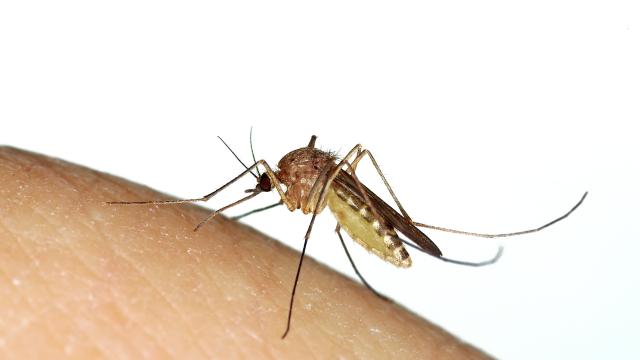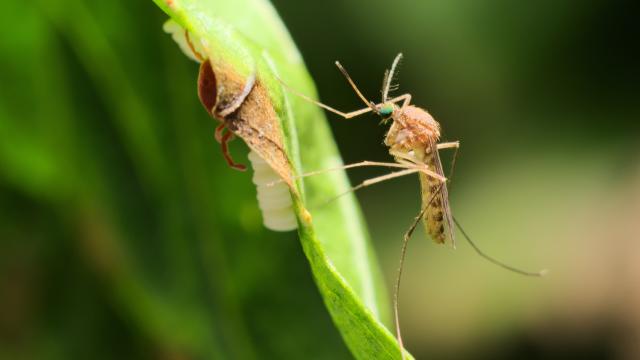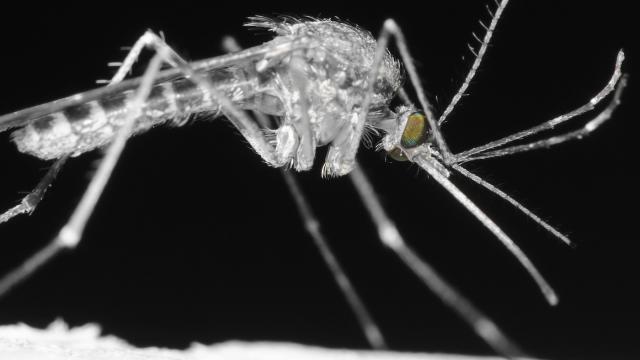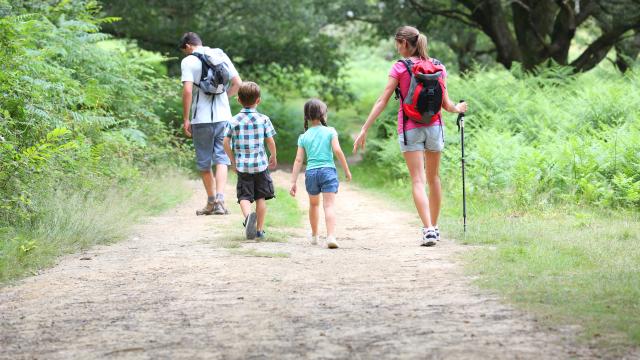Illnesses Spread by Mosquitoes in Wisconsin
There are many illnesses spread by mosquitoes in Wisconsin. Not all mosquitoes spread illnesses, and you won't get sick from every mosquito bite, but it is important to make sure you are aware of mosquitoes, the illnesses they can spread, and how to prevent bites in the first place.
About mosquitoes
- Basics. Mosquitoes are a type of fly. In Wisconsin, there are many types of mosquitoes, but only some types can spread illnesses. Most people who get sick from a mosquito bite will become ill in the summer and early fall. This is when mosquitoes are most active and people are outdoors.
- Life cycle. Mosquitoes have a life cycle that includes four different stages: egg, larva, pupa, and adult. Female mosquitoes lay their eggs on or near water, and the eggs hatch after coming into contact with the water. After hatching, the larvae will feed until they have enough energy to change into pupae. The pupae then grow into adult mosquitoes, the only flying stage. Only adult female mosquitoes bite humans and other animals to get blood meals, after which they lay their eggs on or near water, starting the cycle again. The life cycle of a mosquito usually takes two weeks. However, it can range from four days to one month.
Habitat. Mosquitoes live in areas with slow-moving or stagnant water, as well as forests, marshes, and tall grasses. Mosquitoes fly and land on animals or humans to bite the host's skin and consume blood. Warmer and wetter climates can increase the risk of getting an illness from a mosquito. In Wisconsin, climate change has created favorable conditions for mosquitoes to survive in more areas of the state, has made the mosquito season longer, and allows infected mosquitoes to spread diseases faster. For more information, visit our Climate and Infectious Disease page.
In general, mosquitoes can be divided into two different types based on the habitats where they lay their eggs: standing water mosquitoes and floodwater mosquitoes. Most mosquito eggs need small amounts of water to hatch and develop into adult mosquitoes. For more information on the mosquito life cycle, and how to prevent mosquitoes around your home, visit the Environmental Protection Agency (EPA) website.
- Prevention. The best way to avoid getting sick from a mosquito is to prevent bites in the first place. There are many ways to prevent mosquito bites, including wearing insect repellent and wearing appropriate clothes when you are outdoors. Check out other tips to prevent mosquito bites!
West Nile Virus

Jamestown Canyon Virus

La Crosse Encephalitis Virus

Eastern Equine Encephalitis Virus

St. Louis Encephalitis Virus

Travel-Associated Illnesses

Resources
Just for you and your family
- Signs, symptoms, and prevention of illnesses spread by mosquitoes in Wisconsin—Illnesses Spread by Mosquitoes Fact Sheet, P-42026 (PDF)
- West Nile virus signs, symptoms, and prevention—West Nile Virus Fact Sheet, P-42104 (PDF)
- Jamestown Canyon virus signs, symptoms, and prevention—Jamestown Canyon Virus Fact Sheet, P-02452 (PDF)
- Malaria signs and symptoms, treatment, and prevention—Malaria Fact Sheet, P-42071 (PDF)
Just for health professionals
Preparation and response—Vectorborne Disease Toolkit, P-01109 (PDF)
Resources can be ordered for free from DHS. Here's how
- Download our Forms/Publications Order document F-80025A (Word). Use this form to order multiple forms and publications at once. Internet Explorer users: If you get a Windows Security popup box asking you to log in, select Cancel. The form will download without logging in.
- Complete the form by using the tab key to work through the input fields. Don’t use the return or enter key.
- Email any questions or the completed form to dhsfmorder@dhs.wisconsin.gov.
- Fact sheet on mosquito bite prevention—Mosquito Bite Prevention in the United States (PDF)
- Fact sheet on mosquito bite prevention while traveling abroad—Mosquito Bite Prevention for Travelers (PDF)
- Information about how mosquitoes spread germs—About Mosquito Bites
- Details about the mosquito that spreads West Nile virus—Life Cycle of Culex Mosquitoes
Contact us
Questions about illnesses spread by mosquitoes? We’re here to help.
Bureau of Communicable Diseases
Phone: 608-267-9003
Fax: 608-261-4976
